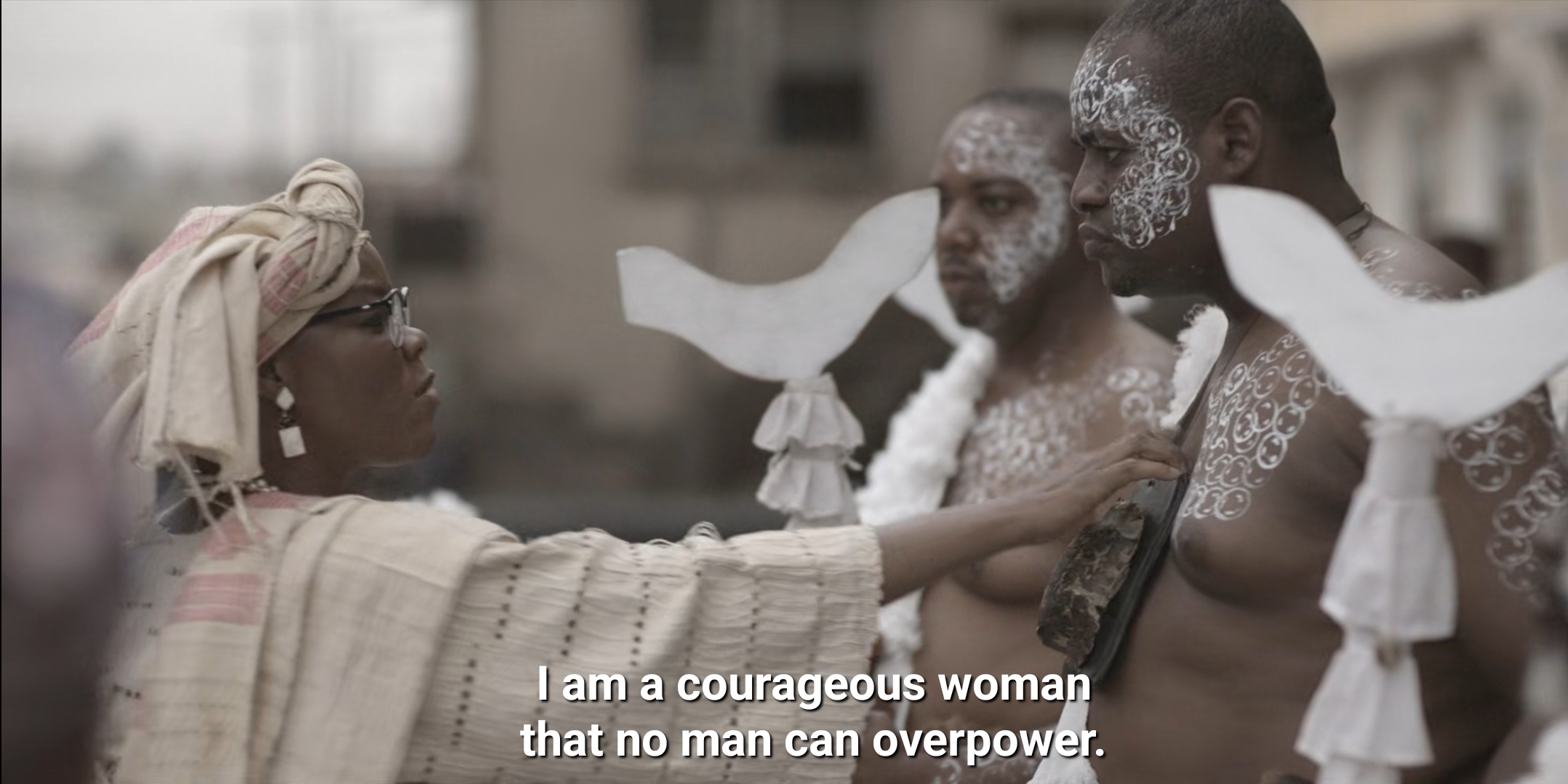MOVIE REVIEW: A Lioness Roars: Unveiling the Layers of “Funmilayo Ransome-Kuti”
“Funmilayo Ransome-Kuti,” the 2024 biopic directed by Bolanle Austen-Peters, transcends the boundaries of a historical drama.
It’s a captivating exploration of social justice, gender equality, and the unwavering spirit of activism, all woven into the life story of a remarkable woman, which culminated in her popular title, “Lioness of Lisabi.”
The film delves into the journey of Funmilayo Ransome-Kuti, mother of Afrobeat legend Fela Kuti (played by Kehinde Bankole), showcasing her transformation from a young student defying societal norms to a formidable leader who relentlessly challenged the status quo.
Shattering Glass Ceilings: A Fight for Education and Equality
One of the most powerful themes that resonates throughout the film is the fight for gender equality. Funmilayo’s story is a testament to the unwavering pursuit of education and equal rights in the face of a deeply patriarchal society. We see her defy limitations from a young age, becoming the first female student at her secondary school.

This act of defiance sets the stage for her lifelong commitment to breaking down barriers. The film doesn’t shy away from portraying the challenges she faced – societal disapproval, limited opportunities, and a deeply ingrained belief that women belonged in the domestic sphere. Yet, Funmilayo perseveres, her determination serving as a powerful inspiration for audiences grappling with similar issues in the modern world.
Strength in Numbers: The Power of Collective Action
“Funmilayo Ransome-Kuti” beautifully portrays the importance of collective action in achieving social change. A pivotal moment in the film is the founding of the Abeokuta Women’s Union (AWU) by Funmilayo. This organization becomes a platform for women to mobilize and fight against injustices like unfair taxation and corrupt practices.

The film emphasizes the strategic use of collective action – the strength found in unity and the amplified impact that a group can have compared to individuals acting alone. We witness the transformative power of the AWU, not just in effecting change but also in empowering women to find their voices and claim their rightful space in society, which eventually led to the abdication of the thrown by the then Alake of Egba (played by Adebayo Salami).

Navigating a Tightrope: Tradition and the Path to Progress
The film skillfully navigates the complex relationship between tradition and progress. Funmilayo’s character is deeply rooted in her Yoruba heritage, yet she fiercely criticizes harmful traditional practices that restrict women’s autonomy. This internal conflict adds depth to her character and reflects the challenges faced by those advocating for change within their cultural context. We see her grapple with honoring her heritage while simultaneously fighting to dismantle aspects of it that perpetuate gender inequality. This nuanced portrayal avoids simplistic portrayals of tradition versus progress, instead offering a thought-provoking exploration of the complexities of cultural evolution.
The Unspoken Toll: The Price of Activism
“Funmilayo Ransome-Kuti” doesn’t shy away from portraying the sacrifices and struggles inherent to activism. Funmilayo’s unwavering commitment to justice comes at a significant personal cost with the loss of her husband, Israel Ransome-Kuti (played by Ibrahim Suleiman).

She faces intimidation, threats, and even physical violence for her vocal opposition to injustice. The film doesn’t romanticize activism; it portrays the emotional toll, the constant sense of danger, and the potential for isolation that comes with challenging the status quo. This adds a layer of realism to the narrative, reminding us that fighting for what’s right often requires immense personal courage and resilience.
A Legacy That Echoes Through Time: Inspiration for Generations to Come
Ultimately, “Funmilayo Ransome-Kuti” celebrates the enduring legacy of a woman who dared to raise her voice. It’s a powerful testament to the transformative power of an individual fueled by a deep sense of justice. Funmilayo Ransome-Kuti’s unwavering spirit and dedication to social change inspire future generations to fight for a more equitable society.
The film transcends a mere biography, becoming a poignant reminder that even ordinary individuals have the potential to create extraordinary change, leaving an indelible mark on the world around them.


